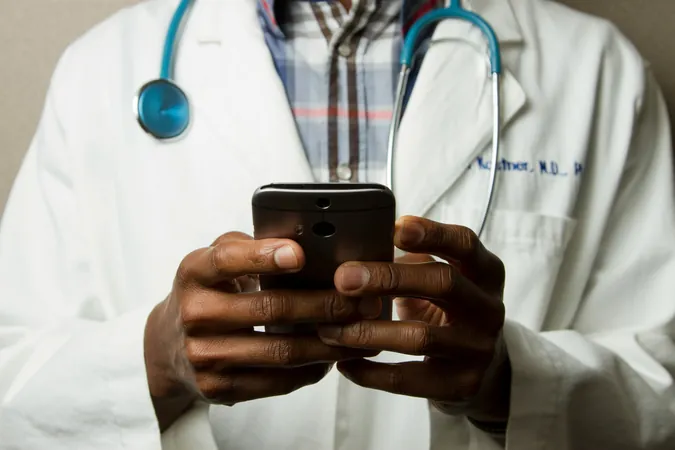
The Hidden Dangers: Adolescent Confidentiality Fears in Patient Portals
2024-10-07
Author: Rajesh
Introduction
Recent research from Weill Cornell Medicine has spotlighted a critical concern in adolescent healthcare: the impact of parental access to online patient portals on young patients' willingness to share vital health information. This apprehension can lead to serious risks, including missed diagnoses and insufficient treatment, particularly impacting older adolescents who may require sensitive care.
Key Findings of the Study
Published on October 7 in JAMA Pediatrics, the study surveyed a nationwide sample of 349 individuals aged 18 to 26, specifically targeting those eligible for their parents' insurance plans. Findings revealed that nearly half (49%) of the participants were indeed under their parents' coverage, highlighting the complex dynamics of adolescent healthcare in the context of parental involvement.
The study, led by Dr. Marianne Sharko and Dr. Erika Abramson at Weill Cornell, uncovered troubling statistics: about 50% of respondents indicated they would hesitate to access an online patient portal if they thought their parents could monitor their health information. Moreover, 55% expressed they would alter the sensitive details they disclosed if they felt parental oversight was possible.
Voices of the Participants
Respondents voiced their fears openly, shedding light on personal stories that underscore the urgent need for confidentiality in healthcare settings. One participant shared, "I don't want my parents to know I'm a trans person because that would put me in danger. I should be able to receive care I need without being afraid." Another highlighted the stigma surrounding mental health, stating, "I'm in treatment for PTSD from abuse in childhood. My mother would be livid if she found out things I've told my therapist… informing her that I have PTSD would tip her off that I 'blabbed' about the abuse."
The Impact of the 21st Century Cures Act
This study is particularly important given that the 21st Century Cures Act mandates easy electronic access to personal health information for patients. However, this convenience does not come without its drawbacks. Patients can feel vulnerable about sharing sensitive issues — such as sexual health and mental wellbeing — if they fear their parents might inadvertently expose their private issues. This hesitation can lead to dire consequences, including undiagnosed sexually transmitted infections or untreated mental health conditions, particularly among those who identify as female or belong to sexual and gender minority groups.
Recommendations for Healthcare Providers
As healthcare providers look to integrate technological solutions into adolescent care, maintaining confidentiality is paramount. Health experts advocate for improved systems that protect sensitive information without compromising the rights of young individuals to receive the care they need. The conversation around parent access to such portals must evolve, encouraging open dialogue that prioritizes the health and safety of adolescent patients.
Conclusion
This critical research serves as a wake-up call—medical professionals must address these confidentiality fears to ensure that young people feel safe to fully engage in their healthcare journeys.



 Brasil (PT)
Brasil (PT)
 Canada (EN)
Canada (EN)
 Chile (ES)
Chile (ES)
 España (ES)
España (ES)
 France (FR)
France (FR)
 Hong Kong (EN)
Hong Kong (EN)
 Italia (IT)
Italia (IT)
 日本 (JA)
日本 (JA)
 Magyarország (HU)
Magyarország (HU)
 Norge (NO)
Norge (NO)
 Polska (PL)
Polska (PL)
 Schweiz (DE)
Schweiz (DE)
 Singapore (EN)
Singapore (EN)
 Sverige (SV)
Sverige (SV)
 Suomi (FI)
Suomi (FI)
 Türkiye (TR)
Türkiye (TR)